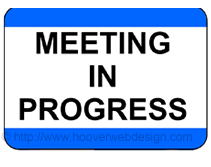An eight hour drive in a van all the way from Pennsylvania to Indianapolis allows for a lot of time to think, and think I did. I thought about how excited I was to once again attend the National FFA Convention and Expo, I thought about all the friendships I would be able to rekindle and strengthen, but most of all I thought about a new challenge that I would get to experience.
The ATA Conclave is held every year in Indianapolis at the same time as the National FFA Convention and Expo serving as a way for those pursuing Agricultural and Extension Education as their future to continue to build knowledge that applies to their major. After word spread that I planned to attend the National FFA Convention and Expo with LEAD Society, I was asked to compete in the ATA Conclave's Parliamentary Procedure contest and accepted.
I had never competed in Parliamentary Procedure before, so I was of course nervous about the event. As time passed and the contest drew nearer though, my anxiety grew. My team's busy fall semester schedules did not allow for us to practice together and the more I heard about the contest, the more intimidating it seemed. The only formal experience I had with Parliamentary Procedure was half of a semester in Dr. Foster's Practical Parliamentary Procedure course and the stories of the teams at the ATA Conclave trying to trick each other into messing up, barely being able to get a word in, and the contest's fast paced nature in general did not quiet my anxiety. In fact, approaching Indianapolis on the last few stretches of our journey from Pennsylvania, I fell silent in the van, trying to keep my nerves in check, but also trying to anticipate what to expect from the contest without having practiced with my team.

So, the contest came, and it went, and each of the prophesies that I had heard about the contest came true. The assembly repeatedly appealed the decision of each chair, crafted complicated motions, and presented questions of privilege that took away from the assembly's time to conduct business. I barely got the chance to make motions and offer discussion as catching the attention of the chair was incredibly competitive. In fact, the contest was progressing so quickly that I was having a hard time figuring out which motion was being discussed. In short, the Parliamentary Procedure competition at the ATA Conclave was even more stressful than I had anticipated it to be. However, it was also one of the most beneficial learning opportunities that I could have experienced while studying Parliamentary Procedure.
Parliamentary Procedure is hard to learn from a textbook, or even in a classroom. Judging by the great leaps of knowledge that I experienced in Indianapolis, the only way to truly learn the complicated processes of Parliamentary Procedure is to partake in an assembly and learn as you go. While I had learned the purpose of each motion in Robert's Rules of Order Newly Revised in class, it was not until the ATA Conclave that I was able to grasp their application and appreciate their diversity. While I sat flustered as the contest progressed at a rapid pace around me, I realized that in Parliamentary Procedure, knowledge truly is power. While I was intimidated by the assembly's aggression toward the chair, I was able to understand the integrity and purpose that Parliamentary Procedure is built upon, and recognize where the contest lacked in those areas. While participating in the Parliamentary Procedure competition at the ATA Conclave I was not prepared to win, but I was prepared to learn, and learn I did. Though it was a challenging experience, I am grateful for having had the chance to expand my knowledge and appreciation for Parliamentary Procedure from Pennsylvania to Indianapolis at the ATA Conclave.






